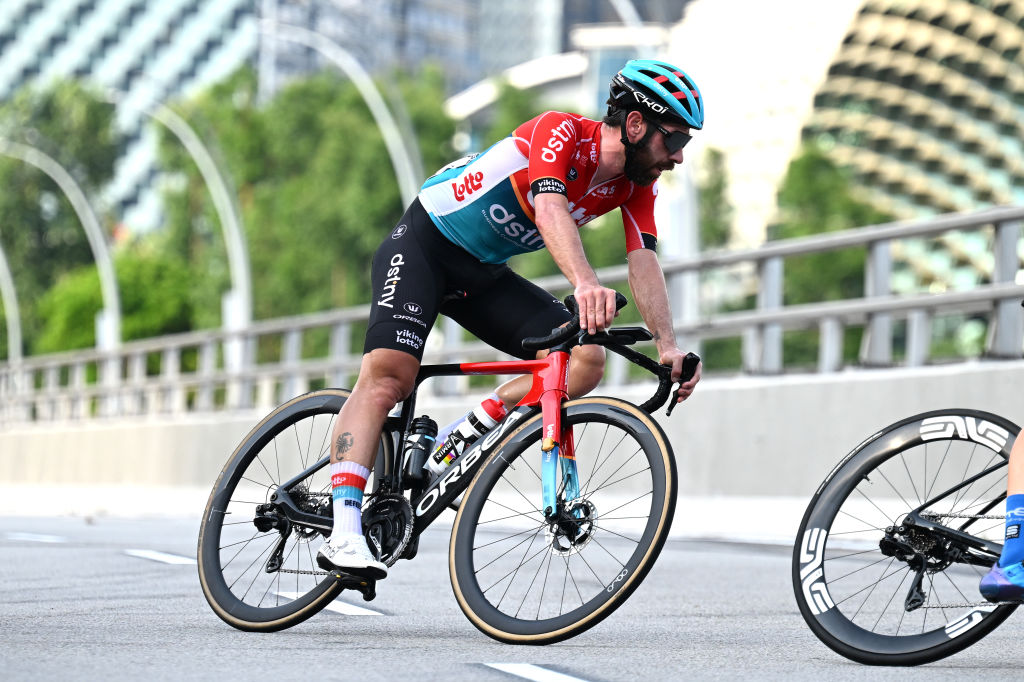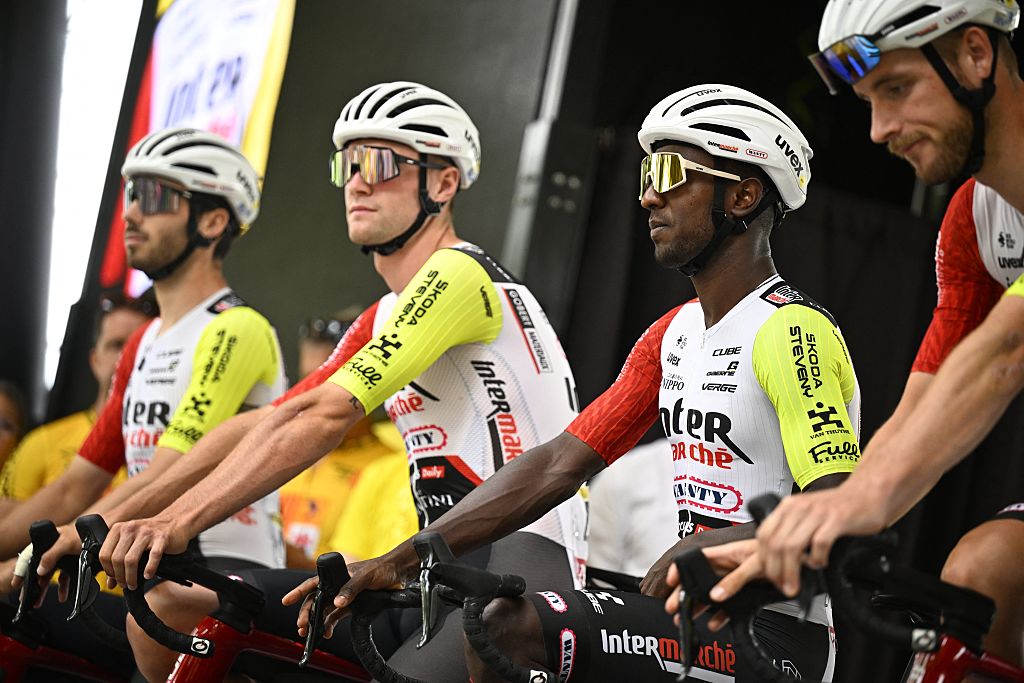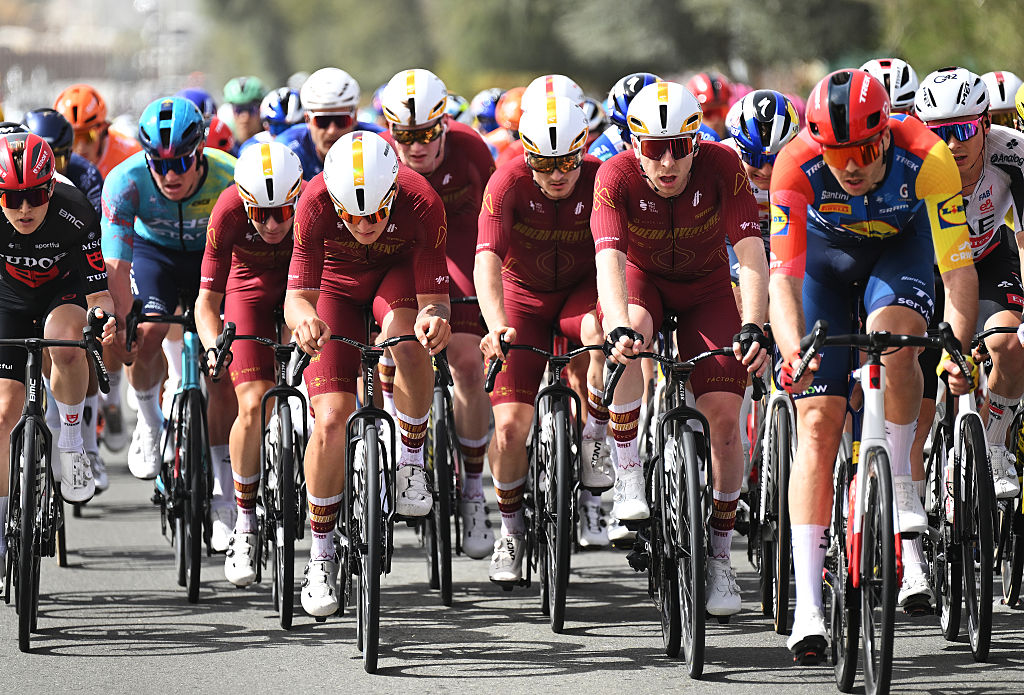'A bit like being in Hell' – Thomas De Gendt on the tumultuous ongoing Lotto-Intermarché fusion and what team mergers mean for the rest of the peloton
In his latest column, the former Lotto racer argues that the existing team structure also has major role to play in ongoing complications

The latest race content, interviews, features, reviews and expert buying guides, direct to your inbox!
You are now subscribed
Your newsletter sign-up was successful
Whenever there's news of a team merger in the peloton, I think the general reaction to it amongst those riders affected is simply: 'Oh shit, maybe I won't have a job'. Obviously, a lot depends on whether you have an ongoing contract or not, because if you are still under contract, you won't be suffering from that much stress. But if you aren't, a fusion just means one thing: fewer spots on one team – not two – for more riders.
You can see that happening now with the Lotto-Intermarché merger, where many of the big transfers are either not happening or have been put on hold for a long period of time. That's simply because people still don't know how the Lotto merger with Intermarché is going to work out, they don't fully know which riders will be on the market again, and they don't even know which team sponsors will be on the market, either.
That's because not all the sponsors can move from the two old teams to the single new one, and many of them would probably still like to stay in the cycling world – that's as true for clothing brands as it is for bike brands. For example, I've heard Orbea is the new bike brand for the merged team in 2026, so that means Cube doesn't have a team to sponsor, and I can imagine that the brand would still prefer to stay in the WorldTour, or in professional cycling at least. The same could well go for other key sponsorship areas, I think, so even those things still have question marks above them.
In a general sense, the effect of a merger like this is that it really blocks the whole transfer market. For the riders at the grassroots level, they're going to ask themselves: "Am I included in the team plans?"
What I've heard from the Lotto-Intermarché situation is that the riders really don't know anything about the team, and a significant number of riders still don't know if they are in or out, even in November. OK, Arnaud De Lie or Biniam Girmay don't have to worry. But the less well-known riders and the young riders will surely have to worry a lot about their jobs and their future, because they definitely won't be at the front of the queue of other teams to be signed, either. So, since the plans were announced in the news in July, for those riders, it's a bit like being in hell.

The knock-on effect
I know from personal experience what it's like because in 2013, two teams folded and there was a merger as well, just at a point when Vancansoleil, my squad for the previous three years, lost its sponsors. I still had a contract with the team but I was released from my contract at the end of September.
Suddenly, there were 90 riders on the market for around 20 spots left on teams, and that was a big problem. I ended up in Omega Pharma-QuickStep in 2014, but the truth is I would have accepted any offer going on the table.
The latest race content, interviews, features, reviews and expert buying guides, direct to your inbox!
A lot of riders were out of contract, so – just as the situation is now – you can't really demand a certain salary or particular bonuses. You don't have any leverage for negotiating at all. You just have to accept anything that they throw at you. In my case, back in 2013, that meant I had to settle for an 80% pay cut. So the effects of these mergers can be felt by more than just the riders on the teams involved.
Fortunately, QuickStep was a really good team, and any rider would have been very happy to sign a contract with them. So, yes, I had to race for a lot less money, but at least I still had a job, I still had a year to really show myself again and potentially go back to a higher salary in the years that followed. However, I think it was just before Il Lombardia that I signed that contract, so for me it was really last-minute. A lot of riders didn't find a spot and had to retire – I was still one of the lucky ones.
In these circumstances, it is very important to have an agent, but obviously, they have many riders that are out of contract, so the agents have to make priorities as well. Although they will negotiate for the lesser names if people are asking about them, generally speaking, agents will go for the riders who are potentially the most 'rewarding'. In other words, they'll skip handling the low-budget riders, because when you take 5% off a salary as your percentage, there's a big difference between 5% on €50,000 or 5% on €200,000.
At the same time, the teams are playing the game as well and dropping their wages, because they know that everybody's desperate. Quickstep was the only choice for me, and they could have gone even lower with their offer. Thankfully, they didn't, even though their budget was already planned out for the whole year by that point, but they did want to be respectful, and they had made that extra effort too because I'd been on the podium of the Giro d'Italia a couple of years before, and they thought I maybe had GC potential.

Complicated management systems
Turning to my former team, Lotto, and what's happening there now: as Stéphane Heulot, their ex-CEO, has put it, there's another layer of complication and politics to the usual ones. Since Heulot left, the team works with different names at the management level, and that's not always easy to navigate.
Also, I know from being on the team that some of the processes can be long. When Jean Lelangue was CEO before Heulot came in, Lelangue could decide about signing riders if the wage was below €350,000. However, if the wage was higher, then it had to go to a board meeting so they could decide if the rider was fit for the team or not. They lost a lot of good riders in that process because of the process of going to the board, going back to the rider, going back to the CEO, back to the board… It all took too long, and by then the rider was sometimes already gone.
At QuickStep, Patrick Lefevere was the boss; he decided about everything, and if Lefevere wanted to sign a rider, he was also the only one who decided about the contract, the wage and the rider themselves. It's true he had a board that he could ask for advice, but he made the final decisions. But at Lotto, it's up to the whole board to decide about the future of the team.
So that's just a few examples of the things going on in the background that make this merger extra complicated for Lotto, but there are more.

'They still don't know the full story'
On top of that, in my first five or six years at Lotto, there was a different kind of leadership structure with Marc Sergeant and Herman Frison. When I was there, everything was family-like and everybody was friendly. If there were decisions being made about sponsors or riders coming into the team or leaving the team. We as riders also knew about it, but now it seems to me like things aren't as open, and maybe certain things are kept secret.
That's not always a bad thing, but if there is secrecy about the future of the team, and there's been question marks since July, but the riders still don't know the full story in November, that for me is a big problem. As I understand it, right now, the riders can ask questions, but they just don't get the information they need in return.
What's more, the other team in the fusion, Intermarché, reportedly has a €2.5 million debt. So, Lotto thought that Intermarché would bring in €15 million for 2026, and they'd bring €15 million, making for a budget of €25-30 million. However, I've heard it's actually far less. Some sponsors didn't want to make the move to the other team; others couldn't because they overlap with other sponsors, so they had to decide, and therefore, the budget isn't as big as people might have imagined.
Finally, the new team would have had to pay off the contracts of the riders who are not going to stay with the team, but had a contract for 2026 – that's around 11 riders' contracts they had to pay off, and they've lost some other good riders in the process.
Overall, I don't think it's such a positive thing to have two teams in difficulty merge, because the result seems to be that we have one merged team still in difficulty, and the other disappearing. I wouldn't say it's a specifically 'Belgian cycling' problem, either, but the result of a lot of different things in the last years that have led to this situation. All in all, when you look at all of this, it's a bit of a shit show.
You must confirm your public display name before commenting
Please logout and then login again, you will then be prompted to enter your display name.
